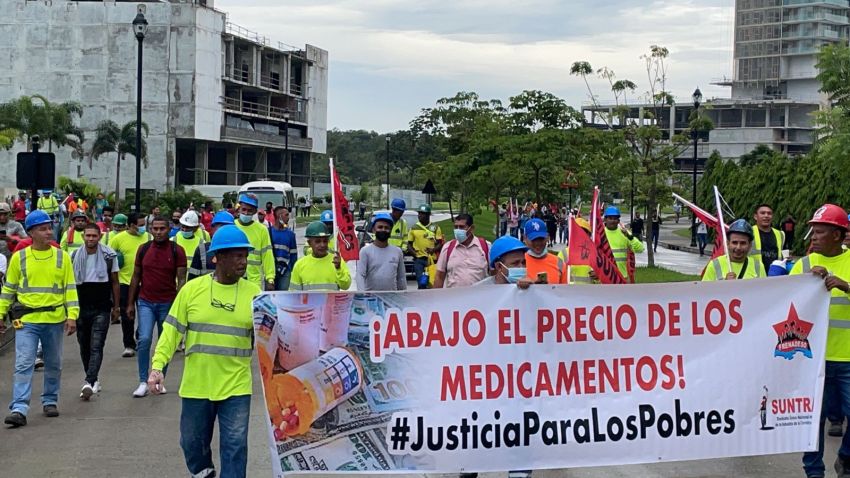
Tens of thousands of workers, teachers, students, doctors, and members of social movements and Indigenous organisations have been mobilising across Panama since July 1, protesting the high cost of living and lack of support from President Laurentino Cortizo’s neoliberal government.
The People United for Life Alliance, a platform that brings together various social movements and trade unions from across diverse sectors, drafted a list of 32 demands for the national government and has organised a series of national mobilisations.
It announced on July 19 that it would take part in a dialogue with the government, mediated by the Catholic Church.
The announcement of a unitary mediated dialogue comes after attempts by Cortizo’s government to fragment the people’s unity by negotiating with select groups.
It also comes after several incidents of police repression against protesters. The repression was vehemently condemned by the Alliance which affirmed that negotiations cannot take place amid repression of the people. The groups have vowed to remain in the streets until a satisfactory response to their demands is received.
Meanwhile, the organisations that make up the Alliance continue their nationwide protests. Thousands of people mobilised in cities and towns across the country on July 18 and 19, maintaining road blockades and organising pickets outside public institutions.
Government representatives met with representatives of the National Alliance for the Rights of the Organized People (ANADEPO), on July 17. ANADEPO is one of the groupings that has participated in mobilisations over the past several weeks.
In the meeting, an agreement was reached that the government would reduce the price of diesel and petrol from US$1.04 per litre to US$0.86 per litre, and ANADEPO would lift the blockades of the main highways and roads. The document also stated that the price of fuel would be subject to variation in accordance with the change in the price in the international oil market.
The agreement received widespread condemnation. Saúl Méndez, general secretary of the Single Union of Construction Workers (SUNTRACS), Eduardo Gil, general secretary of the Trade Union Convergence Confederation (CS), Fernando Abrego, general secretary of the Association of Teachers of Panama (ASOPROF), among various other leaders, condemned the exclusion of representatives of the People United for Life Alliance from the dialogue process and deemed the agreement “unacceptable”.
Méndez said that those associated with the Alliance would continue the protests, stressing that “the government must initiate a serious dialogue with the representatives of all the organisations that are carrying out the struggle and are still in the streets”.
“The people are not in the streets only because of the price of fuel, but also because of (the price of) medicines, electricity, food, and to change this model of oppression that exploits the Panamanian people, this neoliberal economic model.”
Thousands of citizens participated in cacerolazos called by the Alliance on July 17, banging pots and pans, and blowing car horns across the country.
On July 18, the representatives of ANADEPO were supposed to meet with the representatives of the government and health ministries to discuss various measures to address the medicine shortage. However, the government representatives did not show up. ANADEPO declared that “we are withdrawing from the process,” breaking the signed agreement, and joined the call for a unitary negotiation process.
The movement is demanding: a freeze on the price of fuel and basic commodities; a rise in salaries and pensions; a freeze on the price of medicines and resolving the lack of supply; a rise in education and healthcare budgets; better working conditions in the education and health sectors; repair of schools, hospitals, roads and other public infrastructure; measures to combat corruption; rejection of the four bilateral United States-Panama military bases; policies to support Indigenous communities and ensure respect for their autonomy; withdrawal of austerity measures and job cuts in the state's workforce, including the voluntary retirement program for public sector employees, among others.
[Compiled from People’s Dispatch.]